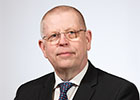Majanduskomisjoni algatatud olulise tähtsusega riikliku küsimuse "Kuidas tõsta tootlikkust Eesti majanduses?" arutelu
Istung: XV Riigikogu, III istungjärk, täiskogu istung
Kuupäev: 2024-05-16 13:01
Sõnavõtte kokku: 122
Koosseis: 15
Päevakorra kestus: 2h 55m
AI kokkuvõtted: 122/122 Sõnavõtud (100.0%)
Analysis: Structured Analysis
Poliitikute Kõneaeg
Poliitikud
Analüüs
Kokkuvõte
Riigikogu arutelu keskendus majanduskomisjoni algatatud olulise tähtsusega riiklikule küsimusele "Kuidas tõsta tootlikkust Eesti majanduses?". Arutelu aluseks oli konkurentsivõime ekspertkogu koostatav raport. Ettekannetega esinesid majanduskomisjoni liige Priit Lomp, Eesti Panga asepresident Ülo Kaasik ja kaitsetööstusettevõtte DefSecIntel Solutions tegevjuht Jaanus Tamm. Priit Lomp rõhutas, et majanduse elujõud nõuab erakonnapoliitikast kõrgemat ühist panust ning tõi esile viis peamist murekohta: kvalifitseeritud tööjõu puudus, madal digitaliseerituse tase, liigne bürokraatia, kapitali kõrge hind ja rohepöörde kulud. Ülo Kaasik esitas detailsemad soovitused, keskendudes tööjõu paremale rakendamisele, hariduse ja töö ebakõla vähendamisele (sh kaaludes kõrghariduse osalist tasuliseks muutmist) ning vajadusele koordineerida taastuvenergia eesmärke naaberriikidega. Jaanus Tamm pakkus kaitsetööstuse vaate, rõhutades agiilsust, oma toodete arendamise tähtsust ja vajadust tuua Eestisse kõrgelt kvalifitseeritud välisinsenere. Ta kritiseeris ka bürokraatiat, mis aeglustab uute tehaste rajamist. Läbirääkimistel rõhutasid fraktsioonide esindajad vajadust stabiilse majanduskeskkonna, bürokraatia vähendamise (Liisa-Ly Pakosta pakkus eesmärgiks 25% vähendamist) ja haridussüsteemi reformimise järele, et lahendada inseneride puuduse probleem. Urmas Reinsalu (Isamaa) kritiseeris valitsuse majanduspoliitikat ebakindluse ja maksutõusude eest, samas kui Mario Kadastik (Eesti 200) rõhutas rahvusvaheliste teaduskeskuste (CERN, ESA) rolli innovatsiooni ja ekspordi võimendamisel. Arutelu lõppes ilma otsust vastu võtmata.
Tehtud otsused 1
Otsuseid ei tehtud
Aktiivseimkõneleja
Mario Kadastik (Eesti 200 fraktsioon) oli aktiivseim küsija ja sõnavõtja, keskendudes innovatsiooni, hariduse ja rahvusvaheliste teadusorganisatsioonide (nagu CERN ja ESA) rollile Eesti majanduse tootlikkuse tõstmisel. (muu)
Esimees Lauri Hussar
AI kokkuvõte
Esimees Lauri Hussar kuulutab täna algavaks majanduskomisjoni olulise tähtsusega riikliku küsimuse „Kuidas tõsta tootlikkust Eesti majanduses?“ arutelu, tutvustab ettekannete järjekorda ja ajakava (Priit Lombi, Ülo Kaasiku ja Jaanus Tamme ettekanne ning nendega kaasnevad küsimused), ning avab arutelu, alustades Priit Lombi ettekannega Riigikogu kõnetoolist.
Priit Lomp
AI kokkuvõte
Priit Lomp rõhutab, et Eesti tootlikkuse ja elatustaseme tõstmiseks tuleb kombineerida ekspertide sisend Riigikogu rolliga ning parandada konkurentsivõimet läbi parema ärikeskkonna, taristu, kvalifitseeritud tööjõu arendamise, digitaliseerimise ja rohepöörde kiirendamise, bürokraatia vähendamise ning regionaalse tasakaalu ja rahastuse tõhustamise kaudu, julgete otsuste astumise ning globaalse majanduskliimaga kaasas käimise nimel.
Esimees Lauri Hussar
AI kokkuvõte
Esimees tänas ettekandjat ja kutsus küsimusi, alustades Mario Kadastikust.

Mario Kadastik
Profiileerimine Fraktsiooni mittekuuluvad Riigikogu liikmedAI kokkuvõte
Kadastik rõhutas, et Eesti peab majanduses tegema struktuurseid muudatusi, suunates ressursid odava tööjõu asemel targale tööjõule ja kõrge lisandväärtusega ekspordile ning usub, et suurte teadus- ja arenduskeskuste ning stažeerimise kaudu saab intellektuaalomandi koju tuua ja ekspordi võimekust suurendada.
Priit Lomp
AI kokkuvõte
Priit Lomp kinnitas, et on nõus, ning märkis, et kuigi rahvusvahelise koostöö näiteid toodi välja, on suurim võimalus noortele ja haridussüsteemile suunata kohalike ressursside suurem väärindamine ja jäätmete taaskasutus, ning ta ei vaidlusta maailmavaatelisi eriarvamusi, vaid nõustub.
Esimees Lauri Hussar
AI kokkuvõte
Esimees Lauri Hussar kutsus Reili Rand'i esinema.

Reili Rand
Profiileerimine Sotsiaaldemokraatliku Erakonna fraktsioonAI kokkuvõte
Reili Rand tänas ettekandjat ja Riigikogu esimeest, rõhutas olulist teemat ja oodatavat lõpp- ning lühiraporti ning küsis, milline on tema hinnangul esimene samm, mida seadusandlik kogus peaks võtma Eesti konkurentsivõime parandamiseks.
Priit Lomp
AI kokkuvõte
Priit Lomp ütles, et tuleb teha nii kiireid kui ka keskpikas vaates vajalikke samme ning arvestada kõigi oluliste valdkondadega, sest ainult ühe esiletõstmisega ei ole päris aus, bürokraatia vähendamine on eelarvepositiivne ning edasi tuleb tähelepanu pöörata energeetikale ja haridusele.
Esimees Lauri Hussar
AI kokkuvõte
Esimees Lauri Hussar pöördub kolleegi Jaak Aabi poole ja palub tal midagi.

Jaak Aab
Profiileerimine Fraktsiooni mittekuuluvad Riigikogu liikmedAI kokkuvõte
Ta rõhutas, et tuleb täpsemalt vaadata regionaalse majanduse ja ettevõtluse teemat, kuna raha ei ole lõputult, ning küsis, kuidas praegused meetmed toimivad, kas struktuurifondide vahendeid võiks kasutada, kuidas stimuleerida kohalikke omavalitsusi ning kellega neid küsimusi edasises arutelus arutada.
Priit Lomp
AI kokkuvõte
Priit Lomp ütles, et Tartu Ülikooli teadlaste esmase analüüsi põhjal on regionaalpoliitika talle südamelähedane ning partnerasutused Arenguseire Keskus, Eesti Pank, Tallinna Tehnikaülikool ja Tartu Ülikool hakkasid seda teemat senisest rohkem tähele panema, tuues seejuures välja, et regionaalpoliitika ilmus ka energeetika, bürokraatia vähendamise ja planeeringute kiirendamise aruteludes kohaliku omavalitsuse näitel ning see mõttevahetus innustas neid edasises uurimises sisulisi sissevaateid jagama.
Esimees Lauri Hussar
AI kokkuvõte
Esimees Lauri Hussar palub Anti Allast.

Anti Allas
Profiileerimine Fraktsiooni mittekuuluvad Riigikogu liikmedAI kokkuvõte
Ta küsib, kas kogu arutelu hõlmas ka seda, kas Eesti senine majanduspoliitika ja maksupoliitika on praegu meie konkurentsivõimet kärpinud või sellele negatiivselt mõjunud ning kas selline analüüs oli või ei olnud.
Priit Lomp
AI kokkuvõte
Priit Lomp tänas küsimuse ja ütles, et eesmärk oli viia vaade ja analüüs erakondade poliitikast kõrgemale ning ta tegi teadlikult nii, et ei seisaks protsessi kõrval iga päev, et vältida konkurentide süüdistusi, ning Ülo selgitab järgmisel ettekandel, kuhu teemaga jõuti.
Esimees Lauri Hussar
AI kokkuvõte
Esimees Lauri Hussar kutsus Kersti Sarapuu rääkima.

Kersti Sarapuu
Profiileerimine Fraktsiooni mittekuuluvad Riigikogu liikmedAI kokkuvõte
Kersti Sarapuu märkis, et maapõuevarade kasutamise teema on taas päevakorda tõusnud ning küsis, kas majanduskomisjon ja ekspertgrupid on arutanud nende tulevikus kasutamise võimalusi.
Priit Lomp
AI kokkuvõte
Priit Lomp ütles, et Riigikogu majanduskomisjon on viimastel aegadel maapõueküsimusega vähe kokku puutunud, püüdnud arutelud korraldada faktidel ja uuringutel põhinevalt ning rõhutas, et tuleb kohalikku ressurssi rohkem väärindada ja vältida töötlemata eksporti, samal ajal kaaludes ka, kas on uusi ressursse, mille väärindamist tuleks mõelda.
Esimees Lauri Hussar
AI kokkuvõte
Esimees kutsus Madis Kallase kõnelema.

Madis Kallas
Profiileerimine Fraktsiooni mittekuuluvad Riigikogu liikmedAI kokkuvõte
Madis Kallas küsis, kas majanduskomisjon tõstatas regionaalteema riiklikult tähtsa küsimusena ning kas keskenduti lähiregiooni ja kaugemate piirkondade häid praktikaid ettevõtlust täiendavalt toetama regionaalvaates, märkides, et see oli oluline teema kogu raportis.
Priit Lomp
AI kokkuvõte
Antud töö andis täiesti vabad käed Tartu Ülikooli teadlastele riigi viimaste pöördumiste ja regionaalpoliitika küsimuste uurimiseks, sest riik tihti ei anna vastuseid, ning kuigi teema pole uurimisasutustes palju tähelepanu saanud, loodetakse, et TÜ või Tallinna Tehnikaülikooli eksperdid suunavad nooremaid kolleege rohkem uurima ja seisukohti esitlema.
Esimees Lauri Hussar
AI kokkuvõte
Esimees kutsub Marek Reinaasi tribüünile.

Marek Reinaas
Profiileerimine Fraktsiooni mittekuuluvad Riigikogu liikmedAI kokkuvõte
Marek Reinaas küsib, kas majanduskomisjonis arutatud konkurentsivõime teema sobitub valitsusele viidud pika majandusplaani visiooniga, mille järgi Eesti majandus peaks 2035. aastaks kahekordseks kasvama, ning kuidas seda hinnata.
Priit Lomp
AI kokkuvõte
Priit Lomp tänas küsimuse ja ütles, et nende algatuse järel on majandusplaane laekunud kui oavarrest ning nende töörühma aruanne püüab tagada, et otsused – olgu need Majandus- ja Kommunikatsiooniministeeriumi majandusplaan või tööandjate soovitused – põhineksid teaduslikel arvutustel ja sisulisel materjalil, et need ei muutuks pelgalt loosungiteks, ning kuigi ta ei soovi olla kriitiline Tiit Riisalo majandusplaani suhtes, märgib ta, et juunis valmiv materjal, mis on üle 130 lehekülje pikk ja lauale pandud, annaks otsustajatele tugeva aluse.
Esimees Lauri Hussar
AI kokkuvõte
Esimees tänab ettekandjat, ütleb, et küsimusi enam ei ole, ning kutsub Riigikogu kõnetooli ettekandeks konkurentsivõime ekspertkogu liiget ja Eesti Panga asepresidenti Ülo Kaasiku ettekandega, mille pikkus on kuni 30 minutit.
Konkurentsivõime ekspertkogu liige Ülo Kaasik
AI kokkuvõte
Riigikogu konkurentsivõime ekspertkogule esitatud raport rõhutab, et Eesti pikaajaline majanduskasv sõltub tootlikkuse tõstmisest, mille jaoks tuleb edendada digitaliseerimist ja automatiseerimist, suurendada oskuste arendust ja inseneride koolitust, lahendada tööjõu ebakõla ning kaasata välistööjõudu, planeerida rohepöörde kulud ja tulud hoolikalt, vähendada bürokraatiat ning parandada rahastust ning kohalike omavalitsuste motivatsiooni, et luua ettevõtlusele soodsam keskkond ning suurendada elatustaset.
Esimees Lauri Hussar
AI kokkuvõte
Esineja pöördub lugupeetud ettekandja poole ja küsib, kas tal on vaja lisaaega.
Konkurentsivõime ekspertkogu liige Ülo Kaasik
AI kokkuvõte
Ta viitab, et tema kõne kestaks üle ühe minuti.
Esimees Lauri Hussar
AI kokkuvõte
Esimees lubab kohe kolm minutit anda, et me mahuksime kenasti raamidesse.
Konkurentsivõime ekspertkogu liige Ülo Kaasik
AI kokkuvõte
Meie soovitus on riigi käenduste tingimuste läbivaatamine ja vajadusel nende soodustamine, mitte-panganduslike rahastusvõimaluste kättesaadavuse suurendamine, pensionifondide likviidsusgarantiide kaalumine ning paremini ettevalmistuda väliste šokkide jaoks, samas parandades Euroopa Liidu fondide jagamist ja rakendamist ning eelarvepoliitika stabiilsust, et tagada ühtlane ja prognoositav majanduskasv.
Esimees Lauri Hussar
AI kokkuvõte
Esimees Lauri Hussar tänas põhjaliku ettekande eest, ütles, et ettekandjale on palju küsimusi, ning palus kõigepealt Urve Tiidus.

Urve Tiidus
Profiileerimine Eesti Reformierakonna fraktsioonAI kokkuvõte
Urve Tiidus märkis, et Eestis õpetatakse insenere vähe ning esitas täiesti teistsuguseid lahendusi, näiteks luua fond, mis annaks inseneriõppuritele stipendiumi ja võimaluse õppida MIT-i, ning küsis, kas tuleb alustada juba esimesest klassist, et noored suunata tehnika- ja tehnoloogiaerialadele.
Konkurentsivõime ekspertkogu liige Ülo Kaasik
AI kokkuvõte
Kaasik rõhutas, et kuigi paljud soovitused polnud uudsed, tuleb püsivalt hoida majanduskasvu fookust ning luua ühise laua taha analüütilised üksused, pöörates samal ajal rohkem tähelepanu matemaatika- ja loodusteaduste õpetusele, sest rahvastiku kahanemine muudab probleemi ajas aina keerulisemaks ning esimesed nähtavad tulemused oodatakse alles kümne aasta pärast.
Esimees Lauri Hussar
AI kokkuvõte
Esimees kutsus Kersti Sarapuu esinema.

Kersti Sarapuu
Profiileerimine Fraktsiooni mittekuuluvad Riigikogu liikmedAI kokkuvõte
Kersti Sarapuu rõhutab, et ettevõtted peaksid investeerima innovatsiooni ja digitaliseerimisse, kuid väikeste ja keskmiste ettevõtete jaoks on rahastus väga koormav — maapiirkondades on tagatised väikesed, laenuintressid umbes 5%, käendustasud 2%+ ning kõrge euribor tekitab lisakulud üle 10%, mistõttu ta kutsub välja konkreetseid lahendusi ja abinõusid.
Konkurentsivõime ekspertkogu liige Ülo Kaasik
AI kokkuvõte
Meie soovitus on lihtsustada Ettevõtluse ja Innovatsiooni Sihtasutuse käenduste tingimusi ning paremini kasutada riigi eraldatud vahendeid, sest ettevõtetel on sageli puudulikud tagatised ning see tekitab takistusi.
Esimees Lauri Hussar
AI kokkuvõte
Esimees Lauri Hussar kutsus Kristina Šmigun-Vähi lavale.

Kristina Šmigun-Vähi
Profiileerimine Eesti Reformierakonna fraktsioonAI kokkuvõte
Kristina Šmigun-Vähi rõhutas, et majandus põhineb piiratud ressurssidel ja tuleb teha valikuid, ning küsis ekspertide vaidluste peamisi teemasid ning millisele valdkonnale Eesti peaks kõige rohkem panustama.
Konkurentsivõime ekspertkogu liige Ülo Kaasik
AI kokkuvõte
Ülo Kaasik rõhutas, et kuigi erinevate analüüside põhjal tekkis mitmekesine ja vahel vastuoluline soovituste palett, on need kõik relevantsed ning tuleb keskenduda nii lühi- kui pikaajalistele mõjudele, tagada analüüsidel põhinevad otsused ja teha ettevõtjate elu lihtsamaks, et investeeringud ja tootmine ei muutuks pikaajaliseks bürokraatiaks.
Esimees Lauri Hussar
AI kokkuvõte
Esimees Lauri Hussar palub Tanel Kiiki.

Tanel Kiik
Profiileerimine Fraktsiooni mittekuuluvad Riigikogu liikmedAI kokkuvõte
Tanel Kiik küsib Eesti erasektori madala digitaliseerituse põhjuste kohta ja selle kohta, mida riik saaks teha erasektori digitaliseerituse tõstmiseks regulatsiooni või innovatsioonitoetuse kaudu.
Konkurentsivõime ekspertkogu liige Ülo Kaasik
AI kokkuvõte
Et Eesti majandus koosneb peamiselt väikestest ja keskmistest ettevõtetest, kelle jaoks mastaabisäästu ja digiteerimise kulud on suuremad ning väliskeskkonna muutused lisavad survet, peaks riigi toetus vaatama ettevõtet tervikuna ning arendama ambitsiooni ja oskusi nende elluviimiseks, mitte piirduma vaid ühe tarkvara rakendamisega.
Esimees Lauri Hussar
AI kokkuvõte
Esimees Lauri Hussar palub Andre Hanimägi.

Andre Hanimägi
Profiileerimine Fraktsiooni mittekuuluvad Riigikogu liikmedAI kokkuvõte
Andre Hanimägi rõhutas, et taristu on majanduse ja konkurentsivõime jaoks keskne ning küsis, milline Eesti esmane investeering see võiks olla—kas Rail Baltic või tuleb aktsepteerida, et meie geograafiline asukoht teeb taristu küsimuse alati keeruliseks.
Konkurentsivõime ekspertkogu liige Ülo Kaasik
AI kokkuvõte
Ülo Kaasik rõhutas, et Eesti väike ja hajusalt asustatud riik peab taristut elaniku kohta oluliselt suuremal määral investeerima, kuid praeguse rahandusliku olukorra tõttu jäi täiendavate kulutustega soovituste andmine ära ning tulevikus pikemas perspektiivis sellist analüüsi teha tasuks.
Priit Lomp
AI kokkuvõte
Priit Lomp tänab kõiki, kinnitab ausat ülestunnistust teise pensionisamba ärakäkkimise kohta ja märgib, et sellest on majanduse kiiremat käivitamist pärssinud pankadevälise rahastamise märkimisväärne vähenemine, ning pakutud likviidsusgarantii tundub mõistlik, lisades kaks küsimust: kui suur peaks kriitiline maht olema, et sellest oleks abi pensionifondidele, ning kui suurt riski garantiiga realiseerimisel nähakse.
Esimees Lauri Hussar
AI kokkuvõte
Esimees Lauri Hussar kutsus lavale Priit Lomp'i.
Konkurentsivõime ekspertkogu liige Ülo Kaasik
AI kokkuvõte
Ülo Kaasik nentis, et riskid on olemas, kuid garantiifond tagab pensionimakseid ning risk on pigem likviidsus kui krediidirisk, esialgsed mahud on sajad miljonid eurod ja tuleks koos pensionifondide esindajatega arutada, kas sellest oleks kasu ning millised mahud sobivad.

Maris Lauri
Profiileerimine Eesti Reformierakonna fraktsioonAI kokkuvõte
Räägitakse, et koondatud materjal soodustab diskussioone ja lahenduste leidmist ning esitatakse küsimus teadus- ja arendustegevuse rahastuse kohta 1+2 kokkuleppe raames: riigi 1% SKP-st on täidetud juba mitu aastat, ettevõtted on aga viimasel ajal olnud alla 1%, ning kas on võimalik kasutada samu võimalusi, et aidata ettevõtetel jõuda 2%-ni.
Esimees Lauri Hussar
AI kokkuvõte
Esimees Lauri Hussar pöördub Maris Lauriga ja esitab palve.
Konkurentsivõime ekspertkogu liige Ülo Kaasik
AI kokkuvõte
Ülo Kaasik ütles, et Eesti võiks rohkem kasutada maksusoodustusi teadus- ja arendustegevuse riskide jagamisel erasektoriga, sest see võib anda eeliseid otsetoetustest ning olla integreeritav äriplaani ja rahastamisega, mida riik võiks paremini soodustada.
Esimees Lauri Hussar
AI kokkuvõte
Esimees kutsub lavale Pipi-Liis Siemann.

Pipi-Liis Siemann
Profiileerimine Fraktsiooni mittekuuluvad Riigikogu liikmedAI kokkuvõte
Ettekandja tõi esile hariduse ja tööjõu ebakõla ning arutles, kas koolitusasutuste ja tööandjate koostöö peaks ümber pöörama nii, et väike- ja mikroettevõtted suurendaksid innovatsiooni, rõhutades kutsehariduse head valmisolekut ja ettevõtjate initsiatiivi puudumist.
Konkurentsivõime ekspertkogu liige Ülo Kaasik
AI kokkuvõte
Ülo Kaasik rõhutas, et ambitsioon peab tulema sisemiselt ning ettevõtete ja hariduse koostööd tuleb tihedamalt ja motiveeritult edendada, sest kutseõppe oskused ei pruugi alati vastata tööturu vajadustele.
Esimees Lauri Hussar
AI kokkuvõte
Esimees kutsus Luisa Rõivast esinema.

Luisa Rõivas
Profiileerimine Fraktsiooni mittekuuluvad Riigikogu liikmedAI kokkuvõte
Luisa Rõivas küsib, milline peaks olema lähiaastate tasakaalueesmärk ja kui kiiresti puudujääki peaks vähendama, viidates 2017. aastast alates süvenevasse miinusesse ja kasvavale riigivõlale.
Konkurentsivõime ekspertkogu liige Ülo Kaasik
AI kokkuvõte
Ülo Kaasik märkis, et Eesti rahandus on kehvas seisus ja tulevikuks tuleb riigis konsensuslikult kokku lepitud eelarvereeglid koos defitsiidi vähendamisega, mis vähendaks ebakindlust nii ettevõtjate kui inimeste seas, ning kuigi valitsuse viimased sammud tunduvad mõistlikud, sõltub nende edukus sellest, kas neid suudetakse ellu viia.
Esimees Lauri Hussar
AI kokkuvõte
Esimees Lauri Hussar palus Anti Allast.

Anti Allas
Profiileerimine Fraktsiooni mittekuuluvad Riigikogu liikmedAI kokkuvõte
Rääkija küsib, kas riigi maksupoliitika on analüüsitud kui majanduse ja konkurentsivõime oluline mõjutaja, ning kuidas see on siiani negatiivselt mõjunud ning mida võiks teha teisiti, et konkurentsivõimet parandada.
Konkurentsivõime ekspertkogu liige Ülo Kaasik
AI kokkuvõte
Kokkuvõttes leidis konkurentsivõime ekspertkogu, et Eesti maksusüsteem on rahvusvahelistes võrdlustes väga hea, erandite vähesus hoiab süsteemi lihtsa ja läbipaistavana ning ettevõtte tulumaksu teemaga tuleks tulevikus põhjalikumalt tegeleda, sest see võib takistada kapitali liikumist.
Esimees Lauri Hussar
AI kokkuvõte
Esimees Lauri Hussar palub Irja Lutsaril võtta sõna.

Irja Lutsar
Profiileerimine Eesti 200 fraktsioonAI kokkuvõte
Irja Lutsar tõi välja laiaulatusliku tööjõupuuduse ja märkis, et 60% tööl käivatest peaks katma kogu tööjõuvajaduse, ning küsis, kas probleem on ülejõu võimekuses või sektorite vahelises puudujäägi–ülekülluses ning milliseid töid need inimesed tegelikult teevad.
Konkurentsivõime ekspertkogu liige Ülo Kaasik
AI kokkuvõte
Ülo Kaasik rõhutas, et peamine probleem pole pelgalt tööjõupuudus, vaid kõrgelt kvalifitseeritud tööjõu nappus, mida pikas perspektiivis tuleb lahendada, et majanduse tootlikkus kasvaks.
Esimees Lauri Hussar
AI kokkuvõte
Esimees Lauri Hussar pöördub Anti Poolametsa poole ja palub teda.

Anti Poolamets
Profiileerimine Eesti Konservatiivse Rahvaerakonna fraktsioonAI kokkuvõte
Anti Poolamets märgib, et alates 2017. aastast on Läti ja mitmed teised riigid meist tootlikkuses ette jõudnud, ning tema hinnangul ei paranda olukorda odava tööhõive sissevool, Bolti umbkeelsed Kesk-Aasia taksojuhid ega Wolt’i toidukullerid, vaid tegelik lahendus peitub tehnoloogia ja inseneride olemasolus.
Konkurentsivõime ekspertkogu liige Ülo Kaasik
AI kokkuvõte
Meie analüüs näitab, et tootlikkus on viimasel ajal langenud ning Ukrainast pärit sõjapõgenike osakaal tööjõus on suurenenud, ning kolmandatest riikidest pärit rändajate puhul peaks nende lisanduvus aitama olemasolevat tööjõudu, mitte seda asendada, sest kuigi see võib tuua odavama teenuse, ei paranda see tootlikkust ja võib tekitada muid kulukaid ühiskondlikke probleeme.

Mario Kadastik
Profiileerimine Fraktsiooni mittekuuluvad Riigikogu liikmedAI kokkuvõte
Mario Kadastik tõdeb kahe slaidi võrdlust Eesti majanduse konkurentsivõime kohta: kuigi mõnes sektoris on hinnangud rahvusvaheliste hindajate omadega samad, süveneb üldine pessimism ja ta küsib, kas see võib tegevust pärssida, rõhutades, et ta ei nõustu väitega, et kõik oleks rahvusvaheliste hinnangute järgi halvem.
Esimees Lauri Hussar
AI kokkuvõte
Esimees Lauri Hussar palub Mario Kadastikut võtta sõna.
Konkurentsivõime ekspertkogu liige Ülo Kaasik
AI kokkuvõte
See kõne toob välja, et konkurentsivõime hindamisel tuleb arvestada nii uuringu toimumise ajal majandustsükli seisuga kui headel aegadel uuringut korrata, ning kuigi Eesti ettevõtted annavad riigihaldussuutlikkusele sageli kehva hinnangu, näitab rahvusvaheline võrdlus, et teistel riikidel on veel kehvemad hinnangud, mistõttu tekib küsimus, kuidas neid hinnanguid võrrelda ja kaaluda.
Esimees Lauri Hussar
AI kokkuvõte
Kõnet alustatakse tänuga Luisa Rõivasele ja seatakse paika, et igale ettekandjale võib esitada üks küsimus ning järgmisel ettekandjal on uus küsimise võimalus, kuid selle ettekande puhul teise küsimuse esitamiseks ei ole; seejärel kutsutakse Riigikogu kõnetooli DefSecIntel Solutionsi asutaja ja tegevjuhi Jaanus Tamme ettekandeks, mille pikkus on kuni 20 minutit.
Kaitsetööstusettevõtte DefSecIntel Solutions asutaja ja tegevjuht Jaanus Tamm
AI kokkuvõte
Jaanus Tamm ütles, et Eesti kaitsetööstus peab olema ekspordile orienteeritud, kiire ja agiilne ning keskenduma kõrgema lisandväärtusega toodetele (nagu droonid, seiresüsteemid ja platvormid) koos integreeritud riistvara- ja tarkvaraarendusega, kaasates kõrgelt kvalifitseeritud insenere ning digitaliseerides protsesse, et tugevdada Eesti majanduse konkurentsivõimet ja kiirendada tootmist.
Esimees Lauri Hussar
AI kokkuvõte
Esimees Lauri Hussar tänab ettekandjat, märgib, et on päris palju küsimusi, ning alustab nende esitamisega, esimesena Andre Hanimägi, palun.

Andre Hanimägi
Profiileerimine Fraktsiooni mittekuuluvad Riigikogu liikmedAI kokkuvõte
Ettekandest selgub, et kaitsetööstuse toetusrühm kogub tagasisidet seadusandluse ja regulatsioonide piirangute kohta, näiteks droonide testimise reeglite osas, ning küsitakse, kas mured on viidud majanduskomisjoni ja kas need kuulatakse või on vaja täiendavat survet.
Kaitsetööstusettevõtte DefSecIntel Solutions asutaja ja tegevjuht Jaanus Tamm
AI kokkuvõte
Jaanus Tamm ütles, et DefSecIntelil on Kaitse- ja Siseministeeriumiga hea dialoog ning neid kuulatakse ettepanekute ja ideedega, kuid kiirust ei saa alati suurendada, samas rõhutati ettepanekute olulisust ja arutati droonide testimise lihtsustamist ning võimalikke relvaseaduse muudatusi, et need ei kvalifitseeruks kohe raketiteks, sest riik peab reguleerima.
Esimees Lauri Hussar
AI kokkuvõte
Esimees Lauri Hussar palub Priit Lomp tulla lavale.
Priit Lomp
AI kokkuvõte
Priit Lomp tänas Riigikogu esimeest ja ettekandjat ning tõi esile, et Eesti investeerimisvaldkondade prioriteedid on roheenergia ja biomassi väärindamine, põlevkivituha väärindamine, kaitsetööstus, tulevikutoit ja biokeemia, kuigi nimekiri pole lõplik, ning ta küsis, kuidas suurendada välisinvestorite investeerimiskindlust ning tagada nende jätkuv investeerimine Eestisse.
Kaitsetööstusettevõtte DefSecIntel Solutions asutaja ja tegevjuht Jaanus Tamm
AI kokkuvõte
Jaanus Tamm rõhutab maksukindluse olulisust pikaajaliste investeeringute jaoks ning vajadust kõva häälega ja tegudega näidata kaitsevõimet, et investorid saaksid kindlust ja siia investeeriksid.
Esimees Lauri Hussar
AI kokkuvõte
Esimees Lauri Hussar pöördub Pipi-Liis Siemannini ja palub teda tulla.

Pipi-Liis Siemann
Profiileerimine Fraktsiooni mittekuuluvad Riigikogu liikmedAI kokkuvõte
Pipi-Liis Siemann tänas ettekandjat, märkis et ettekanne oli positiivne ja ambitsioonikas, kuid küsis, miks tootmine toimub välisriikides kiiremate menetluste tõttu ning kas seadusandluse muudatused võiksid Eestis investeeringuid kiiremaks teha.
Kaitsetööstusettevõtte DefSecIntel Solutions asutaja ja tegevjuht Jaanus Tamm
AI kokkuvõte
DefSecIntel Solutions toodab kõik oma tooted Eestis ning omab tehaseid ning maintenance hubi Ukrainas kliendi lähedal, kuid mõningaid toiminguid on relvaseaduse tõttu lihtsam teha välisriikides; kui seadus muutub, teeme need Eestis, arendus saab olla Eestis ning mõnikord on vaja investeerida väljastpoolt Eestit, luues väikese hubi näiteks Ukrainas, Poolas või Rumeenias.
Esimees Lauri Hussar
AI kokkuvõte
Esimees Lauri Hussar esitab Madis Kallasile palve.

Madis Kallas
Profiileerimine Fraktsiooni mittekuuluvad Riigikogu liikmedAI kokkuvõte
Madis Kallas tõi välja, et ettevõtjate tagasiside välisriikides on olnud, et uksed avanevad ja kõrgetasemelisi kohtumisi saab, ning Eestis peaks sama kiirus ja abi olema riigiasutustega ja kohalike omavalitsustega suhtlemisel, ning ta küsib, kas selle kiiruse piirab seadusandlus või saali otsused või tehakse seda vähe.
Kaitsetööstusettevõtte DefSecIntel Solutions asutaja ja tegevjuht Jaanus Tamm
AI kokkuvõte
Jaanus Tamm ütles, et kiirelt muutuvas maailmas ei ole aega aastaid oodata ning tuleb olla agiilne nii ettevõttena kui riigina, leida koostöös Kaitseministeeriumi ja ametnikega viise tegutseda ja tulemusi saavutada vastavalt vajadusele, sest olukord on muutunud ning investeeringute planeerimine peab toimuma lühematel tähtaegadel.
Esimees Lauri Hussar
AI kokkuvõte
Esimees Lauri Hussar palub Peeter Tali tulla kõnelema.

Peeter Tali
Profiileerimine Fraktsiooni mittekuuluvad Riigikogu liikmedAI kokkuvõte
Peeter Tali rõhutab, et Eestis on kosmose- ja kaitsetööstuse liit, mitte sõjatööstuse liit, ning küsib, kas Eesti võiks ise mürske toota ja kust leida raha nende ostmiseks, viidates Kaitseväe juhatajale, kes soovib kohe 1,6 miljardi euro eest mürske osta, samas märgib, et suur osa maksukohustuslaste rahast voolab praegu välismaale (Prantsusmaale, Hispaaniasse, Saksamaale jne).
Kaitsetööstusettevõtte DefSecIntel Solutions asutaja ja tegevjuht Jaanus Tamm
AI kokkuvõte
Jaanus Tamm usub, et Eestis on potentsiaal toota nutikamaid mürske ning see võiks kaitsetööstust arendada, kuid see võtab aega ja nõuab planeerimist, ning rahastus peaks tulema suurematest allikatest, näiteks Euroopa Liidu kaitsefondidest ja võlakirjadest, sest Euroopa vajadused on sajad miljardid ja 1,6 miljardit ei ole Eesti jaoks piisav.
Aseesimees Jüri Ratas
AI kokkuvõte
Aseesimees Ratas palub Jaak Aabil võtta sõna.

Jaak Aab
Profiileerimine Fraktsiooni mittekuuluvad Riigikogu liikmedAI kokkuvõte
Kõne toob esile, et ettevõtluskeskkonna ja investeeringute jaoks on oluline, kas riigikaitse rahastamiseks mõeldud maksude tõstmine tõmbab investoreid Eestisse või peletab neid ära, viidates Leedus moodustatud 4% klubile ja paludes hinnangut.
Kaitsetööstusettevõtte DefSecIntel Solutions asutaja ja tegevjuht Jaanus Tamm
AI kokkuvõte
Ta rõhutas, et riigi jätkusuutlikkus sõltub maksudest ning ettevõtjana tuleb teadlikult teada, kui suurt makset vaja teha, ning kui ühiskond otsustab 4–5 protsenti, tuleb selle nimel panustada.

Maris Lauri
Profiileerimine Eesti Reformierakonna fraktsioonAI kokkuvõte
Maris Lauri tänas ettekandjat ning märkis, et varasema IT-valdkonna edu peegeldub agiilsuses ja nutikas tootes, ning küsis, mida soovitaksite Eesti ettevõtjatele, kes otsivad oma valdkonda või seisavad väliste põhjuste tõttu raskustes, kust leida agiilsust ja nutikat toodet.
Esimees Lauri Hussar
AI kokkuvõte
Esimees Lauri Hussar palub Maris Laurit võtta sõna.
Kaitsetööstusettevõtte DefSecIntel Solutions asutaja ja tegevjuht Jaanus Tamm
AI kokkuvõte
Jaanus Tamm rõhutab, et edu algab kliendi vajaduste mõistmisest ja otsekontaktist kliendiga, järgneb katmata vajaduste rahuldamiseks MVP-i arendamine ning riskide võtmine koos noorte inseneride kaasamisega, ning alguses tuleb loobuda mitmest asjast kuni toode on edukas, vahel piisab ka "good enough" tasemest.
Aseesimees Jüri Ratas
AI kokkuvõte
Aseesimees Jüri Ratas kutsus Liisa-Ly Pakosta lavale ja palus tal kõne pidada.
Liisa-Ly Pakosta
AI kokkuvõte
Liisa-Ly Pakosta tänas ettekande eest, ütles, et tuleb vähem maha suruda, palus täpsemat Euroopa Liidu kriitika mõju ning Eesti jaoks konkreetseid tegutsemisviise, ning märkis, et Euroopa Kaitsefond on toetanud vähemalt 15 Eesti ettevõtet nagu Milrem, Cybernetica, DefSecIntel ja Baltic Workboats, ning küsis, mis on veel rahastamata ja kuidas paremini edasi minna.
Kaitsetööstusettevõtte DefSecIntel Solutions asutaja ja tegevjuht Jaanus Tamm
AI kokkuvõte
Jaanus Tamm ütles, et Euroopa Kaitsefond pole pelgalt investeerimisfond, vaid arendusgrantide rahapott, mis on toonud Eesti kaitsetööstusele miljonid eurod ja mille kujunemisele on kaasa aidanud riigiasutuste koostöö, kuid omakapitali investeeringud olid varem piiratud Euroopa Investeerimispanga otsustega — nüüd on olukord muutunud ja fond pakub tööstusele uusi võimalusi teadus- ja arendustegevuseks.
Aseesimees Jüri Ratas
AI kokkuvõte
Aseesimees Jüri Ratas palub Mario Kadastikut lavale.

Mario Kadastik
Profiileerimine Fraktsiooni mittekuuluvad Riigikogu liikmedAI kokkuvõte
Kadastik toonitas, et Eesti võimekuse ja heaolu realistlikuks kasvatamiseks on vaja välisinvesteeringuid ning ekspordi eduks on üheks peamiseks võimendajaks referentsid, mis tõestavad, et oleme suutnud midagi head pakkuda, kuigi kaitsetööstuses on see salastuse tõttu keerulisem.
Kaitsetööstusettevõtte DefSecIntel Solutions asutaja ja tegevjuht Jaanus Tamm
AI kokkuvõte
Jaanus Tamm nentis, et Eesti kaitsetööstuses peab toode enne laialdast kasutuselevõttu olema riigis testitud (näiteks Kevadtormil), sest ilma kodumaise edu tõendita on raske globaalseid turge võita, ning selle protsessi kiirendamiseks tuleb teha tihedat koostööd Kaitseministeeriumi ja Siseministeeriumiga ning kasutada arendustoetusi.
Aseesimees Jüri Ratas
AI kokkuvõte
Aseesimees Jüri Ratas kutsub Kalev Stoicescut lavale.

Kalev Stoicescu
Profiileerimine Fraktsiooni mittekuuluvad Riigikogu liikmedAI kokkuvõte
Kalev Stoicescu küsib, kuidas hinnata Euroopa kaitsetööstuse seisu ning suurriikide—Saksamaa, Prantsusmaa ja Itaalia—valmidust investeerida ja võtta julgeid samme heidutuse tugevdamiseks, sest see on võtmetähtsusega tegur Euroopa kaitsevõime ning meie kaitsetööstuse arengu jaoks, ning kuigi areng on muljetavaldav ja dünaamiline, sõltub see partnerite arengust.
Kaitsetööstusettevõtte DefSecIntel Solutions asutaja ja tegevjuht Jaanus Tamm
AI kokkuvõte
Euroopa riigid suurendavad kaitseinvesteeringuid ja tööstus on valmis investeerima, kuid meil on sellega harjumiseks veel pikk maa ning ainult koostöö piiririikidega ja oma agiilsuse rakendamine toob vajalikud investeeringud ja võimaldab tegelikult uued tehased püsti panna.

Leo Kunnas
Profiileerimine Fraktsiooni mittekuuluvad Riigikogu liikmedAI kokkuvõte
Leo Kunnas küsis, millised oleksid esimesed sammud, et alustada suuremahulist lõhkeaine tootmist (näiteks trotyl/TNT), arvestades suurenevat nõudlust ja seda, et selline tootmine on näiteks Poolas.
Aseesimees Jüri Ratas
AI kokkuvõte
Aseesimees Jüri Ratas kutsus Leo Kunnast lavale.
Kaitsetööstusettevõtte DefSecIntel Solutions asutaja ja tegevjuht Jaanus Tamm
AI kokkuvõte
Jaanus Tamm ütles, et kõige lihtsam viis äriidee edasiviimiseks on leida klient ja koostada äriplaan, ideid jagada ning koostööd teha, vajadusel arutada teemat kaitsetööstuse liidus ning investeeringute osas soovitada kedagi.
Aseesimees Jüri Ratas
AI kokkuvõte
Jüri Ratas avas läbirääkimised ja kutsus Reformierakonna fraktsiooni esindaja Maris Laurit kaheksa minutiliseks sõnavõtuks.

Maris Lauri
Profiileerimine Eesti Reformierakonna fraktsioonAI kokkuvõte
Maris Lauri rõhutab, et riik peab looma ettevõtjatele toimiva keskkonna, tagama ausa konkurentsi, selge ja efektiivse õigusraamistikuga ning kiirete lubade menetluse, pakkuma teadus- ja arendustegevusele ning finantstoetust ning riigirahanduse korda seades vähendada ebakindlust ja suurendada investeeringuid, et Eesti ettevõtjad saaksid ise edu luua.
Aseesimees Jüri Ratas
AI kokkuvõte
Jüri Ratas kutsus Riigikogu kõnetooli Sotsiaaldemokraatliku Erakonna fraktsiooni esindaja Jaak Aabi esinema koos volitusega, mida kinnitab Priit Lombi allkiri nagu kord ja kohus.

Jaak Aab
Profiileerimine Fraktsiooni mittekuuluvad Riigikogu liikmedAI kokkuvõte
Jaak Aab ütles, et Eesti majanduse pikaajaline konkurentsivõime on võtmetähtsusega elatustaseme tõstmiseks ja heaolu kasvatamiseks ning selle nimel tuleb riik, valitsus ja Riigikogu koos ettevõtjatega leida vajalikud sammud, sest laiapõhjaline ekspertide hinnang näitas, et varasemad odava tööjõu, odava energia ja Venemaa–Valgevene soodsale toorainele põhinevad eelised on ammendunud.
Aseesimees Jüri Ratas
AI kokkuvõte
Aseesimees Jüri Ratas tervitas istungisaali rõdul viibivat Tšehhi Vabariigi parlamendi alamkoja esimeest Markéta Pekarová Adamovát ja ütles tere tulemast Eestisse, mille järel ettekandja võis jätkata.

Jaak Aab
Profiileerimine Fraktsiooni mittekuuluvad Riigikogu liikmedAI kokkuvõte
Jaak Aab ütles, et viimastel aastatel on majanduskeskkonda mõjutanud mitmed ebasoodsad sündmused, nagu Venemaa agressioon Ukrainas ja sellest tulenev geopoliitiline polariseerumine ning energiahäire, mis on suurendanud riikide sekkumist ja protektsionismi ning mõjutanud Eesti konkurentsivõimet, ning kuna nõudlus on langenud ja ettevõtted ei suuda panustada, on tootlikkus langenud, kuigi riik on otsustanud panustada 1% teadus- ja arendustegevusse, kuid erasektor ei jaksa sellele järgneda.
Aseesimees Jüri Ratas
AI kokkuvõte
Jüri Ratas kinnitab valmisolekut ja pakub abi, öeldes “loomulikult” ning “palun”.

Jaak Aab
Profiileerimine Fraktsiooni mittekuuluvad Riigikogu liikmedAI kokkuvõte
Jaak Aab rõhutab, et erasektor peaks jõudma 2%-ni teadus-, arendus- ja innovatsiooniga seotud investeeringut ning riik peab bürokraatiat vähendama ning andmete omavahelisele koostööle kaasa aitama, kaasates ettevõtjaid, teadlasi ja ametiühinguid, keskendudes kvalifitseeritud tööjõu puuduse leevendamisele kutsehariduse reformi kaudu ning automatiseerimise ja digitaliseerimise edendamisele, ning Sotsiaaldemokraatliku Erakonna fraktsioon lubab selles protsessis Riigikogu komisjonides aktiivselt osaleda.
Aseesimees Jüri Ratas
AI kokkuvõte
Aseesimees kutsus kõnetooli Eesti 200 fraktsiooni esindaja Liisa-Ly Pakosta ja ta palus kohe kaheksa minutit lisaaega.
Liisa-Ly Pakosta
AI kokkuvõte
Liisa-Ly Pakosta rõhutas, et Eesti tootlikkuse suurendamiseks tuleb esmalt vähendada bürokraatiat ja riigi kontrollide koormust ning teha aruandlus andmepõhiseks, ning teiseks lahendada tööjõupuudus soolise võrdõiguslikkuse ja põhikooli tehnoloogiaõpetuse reformimise, paindlike töötingimuste ning tehisintellekti parema kasutamise kaudu ning konkurentsi tugevdamisega konkurentsiseaduste abil.
Aseesimees Jüri Ratas
AI kokkuvõte
Riigikogu aseesimees Jüri Ratas tänab ja kutsub Isamaa fraktsiooni esindaja Urmas Reinsalu kõnetoolile, kus ta küsib lisaaega—kaheksa minutit.

Urmas Reinsalu
Profiileerimine Isamaa fraktsioonAI kokkuvõte
Ettevõtjate sõna kuulamisel, bürokraatia ja maksutõusude lõpetamisel, konkurentsivõimelise elektrihinna tagamisel tervikvaates energiapoliitikas, rohepöörde plaanimajandusliku käsitluse kõrvaletõmbamisel ning EL-i struktuurifondide efektiivse kasutamise kaudu on Urmas Reinsalu jaoks Eesti konkurentsivõime parandamise võtmetähtsused.
Aseesimees Jüri Ratas
AI kokkuvõte
Ta tänab ja esitab menetlusliku küsimuse Priit Lompile.
Priit Lomp
AI kokkuvõte
Priit Lomp küsib, kas istungi juhataja jagab Urmas Reinsalule tänase istungi materjalid või selle lingi, märkides, et eelkõneleja esitas valikuliselt vaid talle sobivaid tähelepanekuid ja unustas viite teise pensionisamba lõhkumisele ning selle rahastusvõimaluste vähendamisele, kuigi pakuti ka lahendusi.
Aseesimees Jüri Ratas
AI kokkuvõte
Aseesimees Jüri Ratas teavitas, et istungi materjalid on Internetis kõigile kättesaadavad ning kutsus Mario Kadastikut Riigikogu kõnetooli.

Mario Kadastik
Profiileerimine Fraktsiooni mittekuuluvad Riigikogu liikmedAI kokkuvõte
Globaalsete arengute tõttu on majanduses toimunud drastilised muutused ning odava tööjõu kadu, seetõttu tuleb keskenduda kõrgtehnoloogilisele lisandväärtusega ekspordile ning motiveerida hariduse valikut ning luua väga atraktiivseid, huvitavaid töökohti, mis tõmbaksid siia insenere ja teisi tarku inimesi.
Aseesimees Jüri Ratas
AI kokkuvõte
Aseesimees Jüri Ratas palub anda kaheksa minutit aega.

Mario Kadastik
Profiileerimine Fraktsiooni mittekuuluvad Riigikogu liikmedAI kokkuvõte
Et Eesti inseneerias ja ekspordis edu püsivalt tagada, tuleb kasutada rahvusvahelisi keskusi nagu ESA ja CERN, mis annavad teadmisi ning intellektuaalomandi hoidmise kaudu tugeva referentsi ning avavad Euroopa turud, suurendades tootlikkust, mida aitab CERNi täisliikmelisuse ratifitseerimine ja ESA koostöö süvendamine.
Aseesimees Jüri Ratas
AI kokkuvõte
Aseesimees Jüri Ratas tänas majanduskomisjoni ja kõiki osalejaid, eriti Priit Lompi, Ülo Kaasikut ja Jaanus Tamme, ning ütles, et arutelu olulise riikliku küsimuse üle lõpeb ning hääletust ei toimu, esimene päevakorrapunkt on käsitletud ning istung on lõppenud.